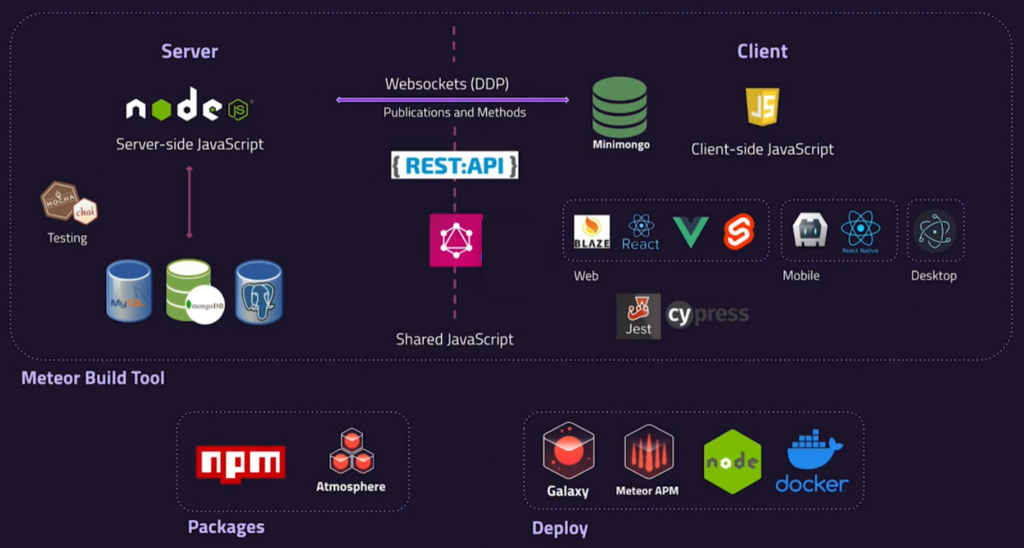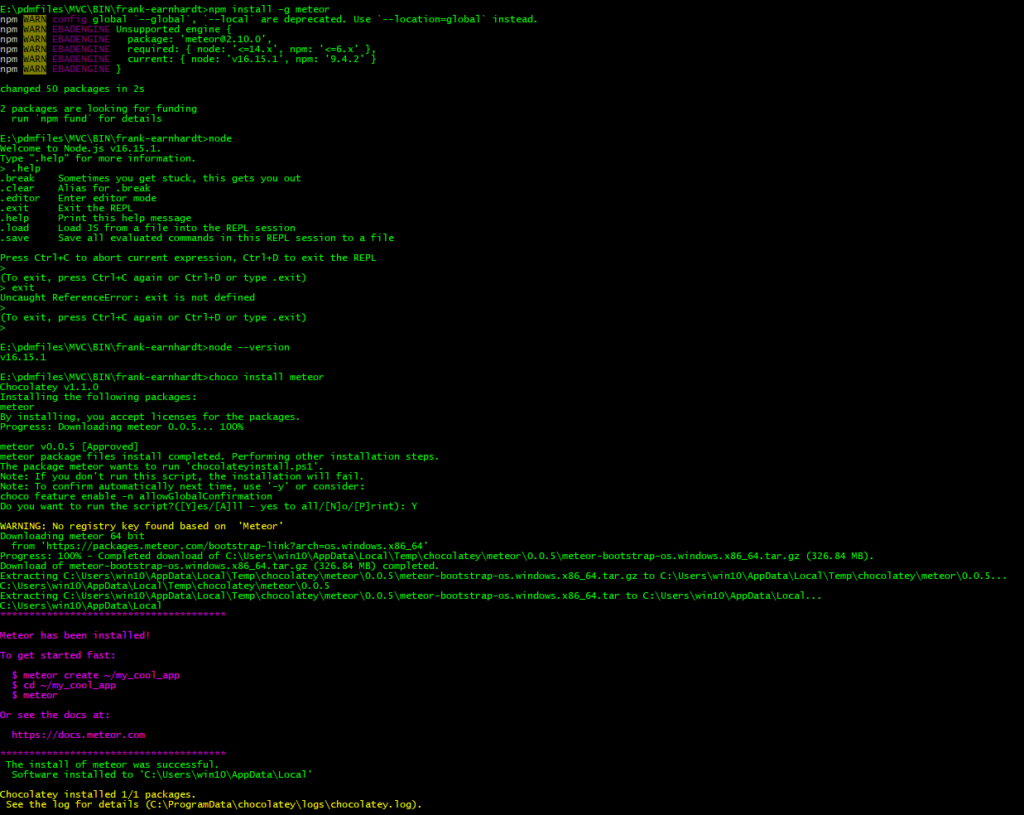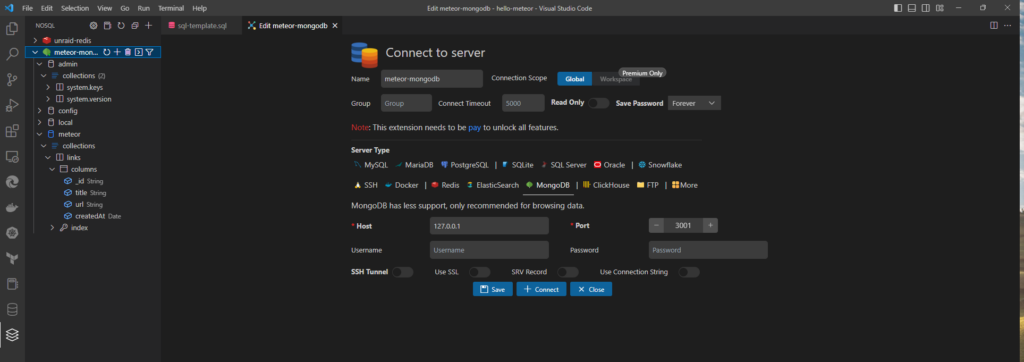Distributed Data Protocol (or DDP) is a client–server protocol for querying and updating a server-side database and for synchronizing such updates among clients. It uses the publish–subscribe messaging pattern. It was created for use by the Meteor JavaScript framework.



E:\work\myMeteor\hello-meteor>meteor --help
Usage: meteor [--release <release>] [--help] <built-in command> [args]
meteor help <built-in command>
meteor [--version] [--arch]
meteor [run | test | test-packages] --inspect[-brk][=<port>]
meteor <node | npm | other> [args]
With no arguments, 'meteor' runs the project in the current
directory in local development mode. You can run it from the root
directory of the project or from any subdirectory.
Use 'meteor create <path>' to create a new Meteor project.
Built-in Commands:
run [default] Run this project in local development mode.
debug Run the project with server-side debugging enabled.
create Create a new project.
update Upgrade this project's dependencies to their latest versions.
add Add a package to this project.
remove Remove a package from this project.
list List the packages explicitly used by your project.
add-platform Add a platform to this project.
remove-platform Remove a platform from this project.
list-platforms List the platforms added to your project.
ensure-cordova-dependencies Ensure that Cordova dependencies are installed.
build Build this project for all platforms.
lint Build this project and run the linters printing all errors and warnings.
shell Launch a Node REPL for interactively evaluating server-side code.
mongo Connect to the local Mongo database
reset Reset the project state. Erases the local database.
deploy Deploy this project to Galaxy, Meteor's hosting service.
authorized View or change authorized users and organizations for a site.
login Log in to your Meteor developer account.
logout Log out of your Meteor developer account.
whoami Prints the username of your Meteor developer account.
test-packages Test one or more packages.
test Test the application
admin Administrative commands.
list-sites List sites for which you are authorized. Lists by region, default is us-east-1.
generate
publish-release Publish a new meteor release to the package server.
publish Publish a new version of a package to the package server.
publish-for-arch Builds an already-published package for a new platform.
search Search through the package server database.
show Show detailed information about a release or package.
See 'meteor help <built-in command>' for details on a command.
Passing '--inspect' or '--inspect-brk' to 'meteor run', 'meteor test', or
'meteor test-packages' will enable debugging of the server process.
Other Commands:
Meteor also bundles 'node' and 'npm' by default. If you use the
commands 'meteor node' or 'meteor npm', you will be running
the same versions of 'node' and 'npm' that Meteor uses internally.
Other commands can be installed in the same directory as 'node' and
'npm' and used in all apps using the same version of Meteor. The
easiest way to install such commands is to add a global npm package
('yarn', 'jsdoc', etc.) that provides the command:
meteor npm install --global <package name>
Any executable program(s) added by this command can be invoked just
like 'meteor node' or 'meteor npm' (for example, 'meteor yarn'):
meteor <other command> [args]
Note that you may need to reinstall these commands after updating to
a different version of Meteor.Using VSCode, Add connection to mongodb using localhost and port 3001

